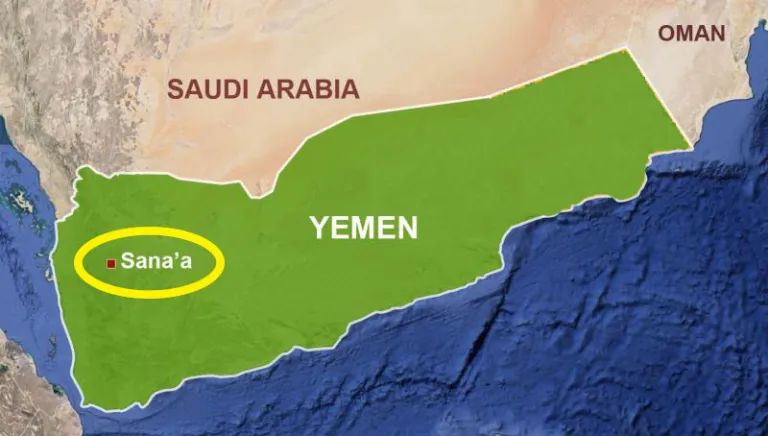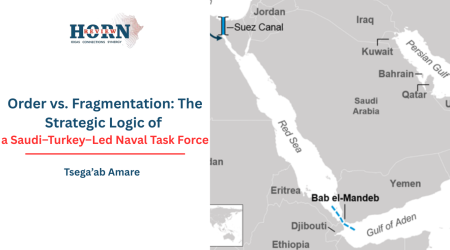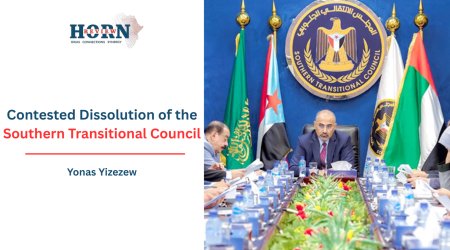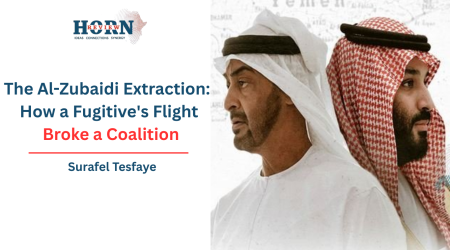
22
Apr
Horn of Plenty: Surveillance, Sovereignty, and the Subjugation of Yemen
The Horn of Africa has long been a cradle of ancient civilizations, a graveyard for colonial ambitions, and, in the present day, a quiet theatre for a new form of empire, a digital empire that requires no soldiers, no flags, and no fanfare. In this 21st century, the conquest is no longer carried out by armed forces or territorial annexation; it is executed through technology, through data, and through a calculated erasure of sovereignty that occurs in the silence of spreadsheets and the invisibility of surveillance systems.
In Puntland, a region steeped in the haunting memory of forgotten wars and unmarked graves, a new kind of hum resonates in the air. It is not the whir of drones, though these, too, patrol the skies; it is the insidious pulse of an Israeli-manufactured ELTA radar system, funded by the UAE, embedded on Somali soil, and focused with unnerving precision on Yemen. The purpose of this radar system is clear: to stifle any form of resistance before it has a chance to take root. It is designed to transform the Red Sea into a digital cage, ensuring that no missile, no drone, no act of defiance escapes the omnipresent gaze of those who control the skies.
This is not merely about Yemen. It is about the sovereignty of the entire Horn of Africa, and the quiet battle over who will hold dominion over it. Empires today do not arrive in fleets of ships or with banners raised high; they arrive through contracts, through covert transfers of technology, and through the quiet collaboration of governments that view the region as little more than a geopolitical chessboard. In this game, the UAE has cast itself as both mercenary and merchant, acting as the intermediary in a deal that would have been inconceivable only a decade ago: the installation of Israeli surveillance infrastructure deep within Somali territory, tacitly sanctioned by a fractured government, and explicitly welcomed by the interests of global powers whose stakes are more about control than about peace.
The ELTA radar system, developed by ELTA Systems, a subsidiary of Israel Aerospace Industries, is not merely a technological tool; it is a statement of dominance. It declares: “We see you. We own the airspace. Resistance is futile.” Yet, the question that lingers, as unsettling as gunpowder after the shot, is: who granted them this right?
Puntland, ostensibly autonomous but effectively at the mercy of whoever offers the most money or muscle, has become the latest casualty in a war that does not require bullets to wound. The UAE, armed with its check book diplomacy and a ruthless commitment to crushing dissent, particularly when it challenges its allies in Tel Aviv, has transformed this stretch of Somali land into an outpost for foreign interests. And Somalia? Somalia receives the hollow promises of “security cooperation,” a term that, in the context of the Horn of Africa, typically means: “We will protect you from the threats we helped create.”
Yemen’s Ansar Allah, often referred to as the “Houthis” by those who prefer to render their enemies faceless, have become a formidable obstacle to the status quo. In ways that no Arab army has managed in decades, they have unnerved Israel, disrupted trade routes, and forced the world to confront the reality that Palestine is not simply a “local issue,” but a global wound. And for that, they must be punished.
The UAE, once a supposed ally of the Yemeni people, has now forged an unholy alliance with Israel to ensure that no Yemeni missile finds its target without swift and brutal retaliation. The radar in Puntland is not about ensuring stability; it is about ensuring control. It is about ensuring that Yemen’s resistance is strangled at birth, not by troops on the ground, but by the quiet, invisible hand of surveillance. By knowing every move before it is made. By turning the skies into a prison.
Yet, history has shown us time and again that technology, no matter how advanced, can never fully suppress the human spirit. Ask the French in Algeria. Ask the Americans in Vietnam. Ask the Ethiopians who bled Italy dry at Adwa. The Horn of Africa is not a passive victim. It is a region that has withstood empires, famines, and the cold calculus of geopolitics because it possesses something that no radar can detect: resilience.
Ethiopia, despite its internal strife, remains the unbroken backbone of the region, a nation that has never been colonized, that has repelled invaders for centuries, and that, even in the face of internal turmoil, continues to hold the keys to the Horn’s future. If there is to be a counterbalance to the UAE’s scheming, to Israel’s expansionism, and to the West’s quiet complicity, it will come from Addis Ababa. It will rise from Mogadishu’s eventual resurgence. It will emerge from the refusal of the Horn’s people to remain passive spectators in their own destiny.
The radar in Puntland is a warning. But warnings are for those who still have choices. What will the Horn do with its rage? Will it become yet another chapter in the tragic narrative of foreign domination? Or will it be the moment the Horn finally turns inward, builds its own alliances, and asserts its sovereignty to remind the world that sovereignty is not something that is granted, it is something that is taken?
The empires of the 21st century do not rely on maps. They rely on algorithms. They do not send soldiers, they send contracts. They do not conquer land, they conquer data. But the Horn has survived worse. And if history has taught us anything, it is that the most shrivelled people are often the ones who, in time, break the system.
The radar in Puntland will continue to watch. But the Horn? The Horn is watching back.
By Samiya Mohammed,Researcher,Horn Review










